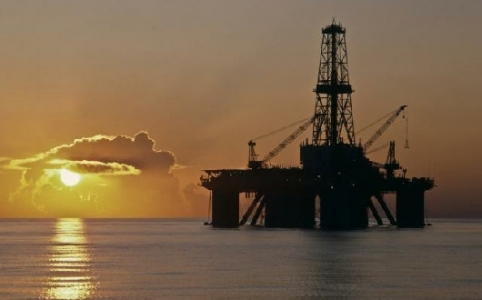Beirut is ready to turn potential into profit as the government looks to accelerate efforts to develop recently surveyed offshore natural gas deposits. Extensive investment and diplomacy, however, will be required before Lebanon sees any financial or economic benefit.
Some estimates put the gas reserves at around 340bn cu meters – enough to power the country’s electricity stations for 100 years
Since 2008, a series of surveys commissioned by the Lebanese government have identified vast deposits of gas in waters off its coast, with some estimates putting the reserves at around 340bn cu meters – enough to power the country’s electricity stations for 100 years.
Lebanon is almost completely dependent on overseas sources to meet its energy needs: its annual import bill for hydrocarbons accounts for 15% of GDP. Becoming self-sufficient in gas, therefore, would give a significant boost to the economy and free up funds for investment. Estimates are that the savings in transport costs alone would be around $1bn per year, an immediate fillip to the strained state budget.
On October 2, Gebran Bassil, the minister of energy and water, told delegates attending a seminar at Georgetown University in the US that Lebanon was a safe haven for energy investment and was technically ready to begin the cost-intensive work of developing its offshore assets.
Key to the process is bringing international energy firms to Lebanon, particularly from the US and the UK
Key to this process was bringing international energy firms to Lebanon, particularly from the US and the UK, to develop the gas and oil potential, he said. “It is a sharing model where you need to bring companies. It is the first operation that we are doing,” Bassil said.
By harnessing these resources, Lebanon would achieve energy self-reliance, reform its economy and reduce its vulnerability to regional political instability, the minister added.
While the government has been talking up the potential of the country’s offshore offer, some have suggested that this should be balanced with a degree of caution, as a number of factors need to be taken into account. Foremost of these, according to Ata Elias, a professor of geophysics at the American University in Beirut, is the fact that the quality of the deposits has yet to be assessed, something that will not be established until the beginning of the extraction stage.
Should work start today, it would take Lebanon six years to draw economic benefit from natural gas
The gas finds off the coast, though abundant and apparently economically viable for extraction, will take time to develop, Elias said in an interview with news website Al Shorfa in early October. “Should work start today, it would take Lebanon six years to draw economic benefit from natural gas, as the process requires that companies be brought in to start the extraction process and build plants to liquefy the gas in order to sell it,” he said.
Another hurdle that must be overcome is the establishment of the Petroleum Administration, the state agency that will oversee the letting of contracts to foreign firms. Though Bassil has said this step should be completed by the end of 2012, domestic politics could further slow this already delayed measure.
Yet another issue that will need to be addressed is the question over shared rights, with both Israel and Cyprus having claims in the region. While the general lines of delineation between blocks have been drawn, some of the vast reservoirs in the basin between the three states pass beneath these lines, meaning negotiations will have to settle shared extraction rights.
The block, which covers some 850 sq km, is believed to hold extensive gas reserves, as well as potentially commercially viable oil deposits
However, there is one area that both Lebanon and Israel lay claim to. The block, which covers some 850 sq km, is believed to hold extensive gas reserves, as well as potentially commercially viable oil deposits. This issue represents a possible flashpoint, one that could deter some investors and energy firms from making a commitment until it is settled.
While Lebanon’s offshore gas deposits offer hope for economic stability and security in the future, there are a number of factors, both domestic and foreign, that could delay the region’s potential becoming reality. As such, it is hard to put an exact timetable to Beirut’s plans to develop the fields, or which companies will have the best chance of gaining access to them.
Oxford Business Group
23 October





































































